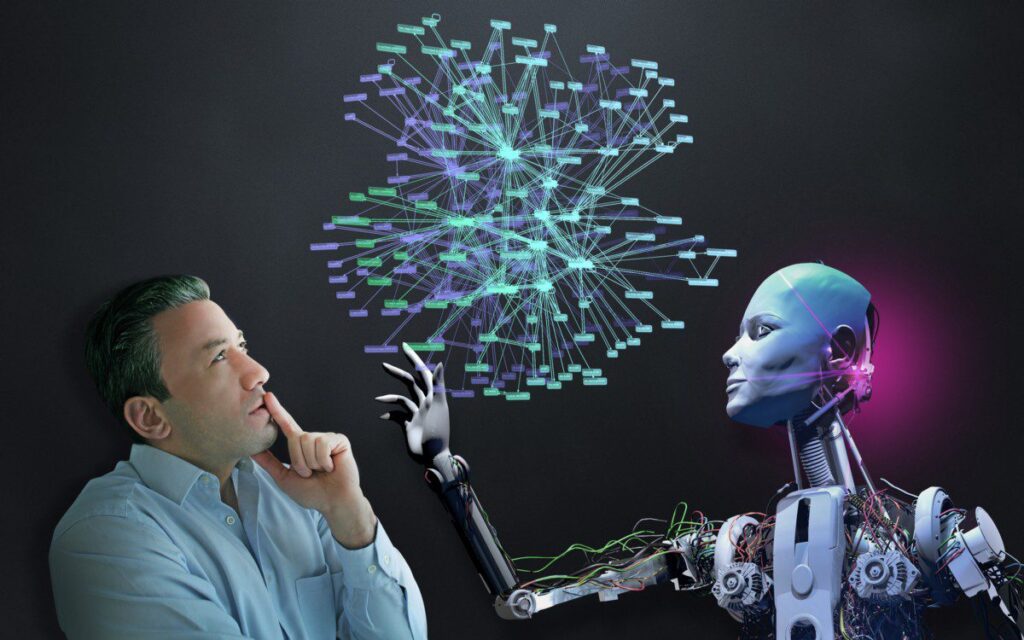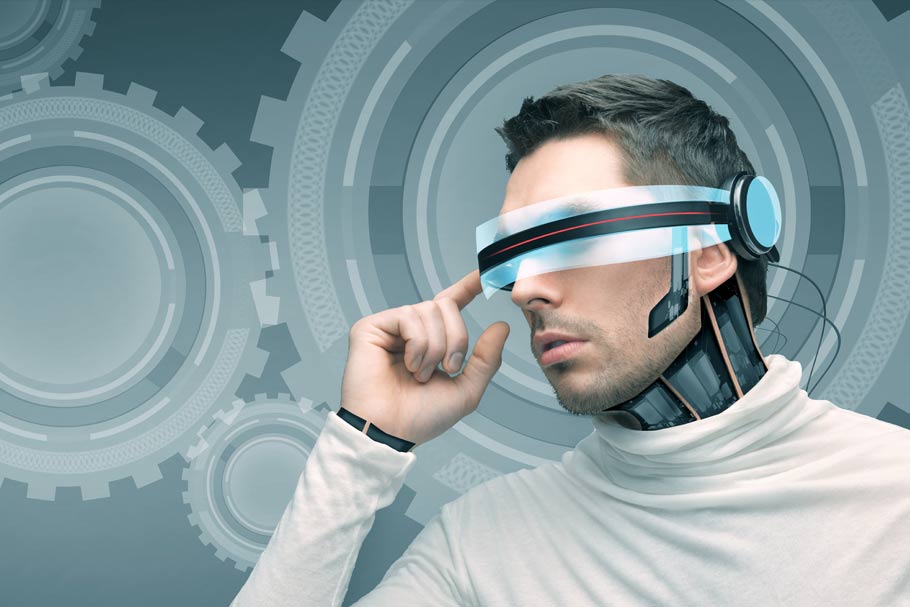The profound technological revolution has etched its mark into every aspect of our lives, from restructuring communication dynamics, business methodologies, work policies, and educational frameworks. The relentless surge of technological progress, already visible in sectors like healthcare, finance, and retail, is poised to usher even more moving transformations in the forthcoming decade. Looking forward, the rise of Artificial Intelligence (AI) emerges as a particularly fascinating and consequential advancement. Having made significant strides, AI is on the edge of heightened intelligence and broader prevalence. The anticipation centers on the meticulous refinement of machine learning algorithms, the amplification of natural language processing, and the finesse in computer vision. As these technologies evolve, they are poised to initiate the advent of highly individualized and efficient services, including virtual personal assistants, astute chatbots, and automated customer service solutions. Fundamentally, this evolution is set to redefine our interaction with technology.
Across just a few decades, technological innovation has brought a profound metamorphosis across every facet of human existence. Serving as a linchpin in the formation of the modern world, spanning from the invention of the wheel to the latest strides in artificial intelligence, has seamlessly streamlined our lives, augmenting productivity and fostering global interconnection.
Despite the numerous positive changes introduced by technological advancements in communication, environmental conservation, and beyond – from the advent of cell phones to virtual reality and artificial intelligence – these transformative developments have not been without societal drawbacks. Undesirable consequences, including technological dependency, instances of cyberbullying, and concerns about privacy invasion, have surfaced alongside the positive impacts. Moreover, questions loom over potential job displacement and the expanding income gap due to the escalating integration of automation and AI across various industries.
The continuous and unwavering emergence of new technologies promises a future of possibilities and potential. While these innovations hold the promise of ushering in welcomed improvements, it remains imperative to approach this future with a discerning eye, staying vigilant about potential risks and actively implementing measures to address them. In this blog, we will delve into some of the most significant technological developments poised to shape our world in the coming years.
Let’s Talk About the Future Advancements!

Technology is advancing at an exponential pace, bringing many promising innovations in the coming years. These emerging technologies will profoundly transform various facets of our lives. Let us explore some key technologies in-depth and how they may reshape the world.
Artificial Intelligence: Powering the Next Wave of Innovation
Artificial intelligence, powering innovation, will permeate the future ubiquitously. AI will be embedded across most devices and systems we engage with. Intelligent digital assistants like Siri and Alexa will gain insights exponentially, and they are capable of natural conversations and detailed discussions. Through refined machine learning, AI systems will match or surpass human abilities in complex tasks. Self-driving vehicles utilizing computer vision and AI will start sharing roads, bettering transportation safety and accident reduction substantially. Workplaces, too, shall leverage AI extensively – robots will assume hazardous duties while AI amplifies worker efficiency. AI algorithms may even augment human art, music, and design creativity. AI combined with data from electronic medical records and genome sequencing in healthcare can help deliver personalized treatment protocols. This will lead to superior medical diagnosis and help discover new cures faster than before.
Internet of Things (IoT): Connecting the Physical and Digital Worlds
The Internet of Things will connect billions of physical devices to the cloud, making our entire environment intelligent and hyper-connected. Smart home appliances that can be remotely controlled and smart city infrastructure that optimizes utility usage will become mainstream. IoT sensors installed in industrial equipment, manufacturing units, agricultural fields and supply chain assets will help optimize outputs while minimizing wastage of resources. IoT-enabled wearables and health monitors will provide valuable insights regarding an individual’s vitals, fitness levels, and potential medical problems. Connected vehicles using IoT will communicate with each other and infrastructure to avoid accidents and ease traffic flows. Everyday objects from toothbrushes to coffee makers will likely have embedded internet connectivity and intelligence in the coming decades.
5G and Enhanced Connectivity: Empowering a Hyperconnected Society
5G networks and advancements in connectivity technologies would have augmented reality and virtual reality transition from niche applications to mainstream experiences. With near real-time access to substantial data pipelines enabled by 5G, AR and VR systems will deliver truly immersive experiences. We may access holographic meeting rooms to seamlessly telepresence with colleagues worldwide. Live VR entertainment events will provide experiences unattainable in physical venues. In manufacturing, AR work instructions can guide assembly line employees. Doctors will use medical VR/AR for non-invasive surgeries. High-speed wireless connectivity will also enable other futuristic technologies like self-driving cars that depend on fast online access. We can expect revolutionary changes in education, social media, and gaming with the advent of 5G.
Blockchain: Driving Transparency and Security
Blockchain, originally developed for cryptocurrencies, can provide more transparency and security to various sectors through distributed ledgers. In banking, blockchain can expedite financial transactions and reduce operational costs. It allows for traceability of supply chain networks to tackle counterfeiting and address social & environmental compliance issues. Property records, medical records, digital identity records, and academic certificates can leverage the tamper-proof attributes of public blockchains. Government services involving records like voting, title registry, and toll collection also benefit from adding transparency using blockchain. Its decentralized nature ensures no single point of control over sensitive data and makes systems resilient to cyber-attacks. With falling costs, blockchain will play a vital role in digitizing manual workflows across industries in the upcoming decades.
Quantum Computing: Unlocking Unprecedented Processing Power
Quantum computers are based on the principles of quantum mechanics and have the potential to massively outperform traditional computers for specific complex tasks. While developing, operational quantum computers containing over 50 qubits have already been built in research labs. Quantum bits, or qubits, can exist in superpositions of states and become entangled in ways classical bits cannot. As qubit counts continue rising exponentially, quantum algorithms may solve problems like simulating new materials and chemical reactions that are too difficult even for the world’s fastest supercomputers. Breakthroughs could dramatically speed up drug discovery and development. Cryptographic encryption may also require rebuilding to be quantum-safe. Optimization challenges across logistics and transportation could see significant benefits. If the challenges of building robust and error-resistant quantum computers are overcome, many domains may be revolutionized.
Biotechnology and Genetic Engineering: Redefining Healthcare
Advances in biotechnology and genetic engineering have great potential to revolutionize healthcare. Precision medicine involving gene therapies and genomic profiling can help determine personalized treatment protocols and drugs tailored to individual molecular signatures. Stem cell research and gene editing technologies improve therapies for incurable diseases by safely modifying DNA. Regenerative medicine may help regrow lost tissues and replace malfunctioning cells, organs, or body parts. Synthetic biology could re-engineer organisms like bacteria to produce biofuels or synthesize new drug compounds. These provide alternatives to conventional pharmaceutical synthesis methods. As genomics expands our understanding of health at the molecular level, cheap whole genome sequencing may help detect vulnerabilities and prevent lifestyle-induced diseases in the future. Overall, biotech innovations promise to extend healthy lifespans and cure genetic illnesses.
Sustainable Technologies: Building a Greener Future
Lastly, sustainable technologies will play a crucial role in mitigating the effects of climate change and environmental destruction. Renewable energy from solar, wind, hydro, and geothermal will likely replace fossil fuels as primary electricity sources worldwide. Carbon-capturing systems may reduce emissions from existing plants. Green transportation solutions like electric vehicles powered by sustainable battery systems will curb oil usage. Improved designs for energy-efficient buildings using solar panels, insulation, and smart meters can significantly reduce residential and commercial electricity consumption. Digital solutions that reduce physical travel and enable remote work will also lower carbon footprints. IoT-driven precision agriculture and hydroponics can enhance food security while conserving land and water resources. New construction materials from biomimicry may substitute resource-intensive cement and steel. With incentives put in place, sustainable living supported by clean technologies will hopefully become standard across the globe.
In conclusion, emerging technologies will profoundly transform our lives in the decades ahead if developed responsibly. While there will undoubtedly be disruption during transition periods, these advancements also herald utopian visions of a healthier, more connected, and sustainable world if guided wisely. In the future, as innovators address societal needs with integrity and policymakers establish conducive long-term policies, technology’s benefits will likely outweigh its risks to lead humanity into a prosperous future. However, proactive steps will be essential to ensure its positive impact through inclusive progress embracing humanity’s highest ideals.
FAQ’s – Frequently Asked Questions
- Will robots and AI take away all human jobs?
While some routine jobs could be automated, experts believe technology will also create new types of jobs that don’t exist today. The overall job market impact remains unclear as new roles balancing human strengths and AI capabilities emerge.
2. will online communication change between people?
Advancements in augmented and virtual reality are poised to fundamentally alter how people socialize and collaborate both near and far. Live hologram conferences and shared virtual worlds may become the new normal, complementing in-person meetings rather than replacing human contact.
3. Will biotechnology make humans genetically enhanced?
Gene editing tools offer correct genetic defects, but employing enhancements remains controversial due to safety issues and “designer baby” concerns. In the near future, applications will focus more on gene therapies for regeneration and medicine instead of extensive human redesign to address current ethical worries over heritable changes. Gene therapies, regenerative engineering, and anti-aging research aim to delay chronic diseases and extend healthy lifespans. Curing genetic defects through precision gene editing also shows promise to reduce mortality and disability globally.
4. How will lifestyles and daily routines be different?
Pervasive connectivity and automation through IoT, AI, and robots may reshape schedules and activities. More flexible work-shared transportation, remote everything, and smart home assistance could redefine time spent on chores versus leisure.
5. What will cities and communities look like?
Smart city technologies may optimize transportation, resource usage, public services, and citizen engagement horizontally. Vertical farms, drone deliveries, along with the Internet of living things stand to alter infrastructure and lifestyles substantially.

